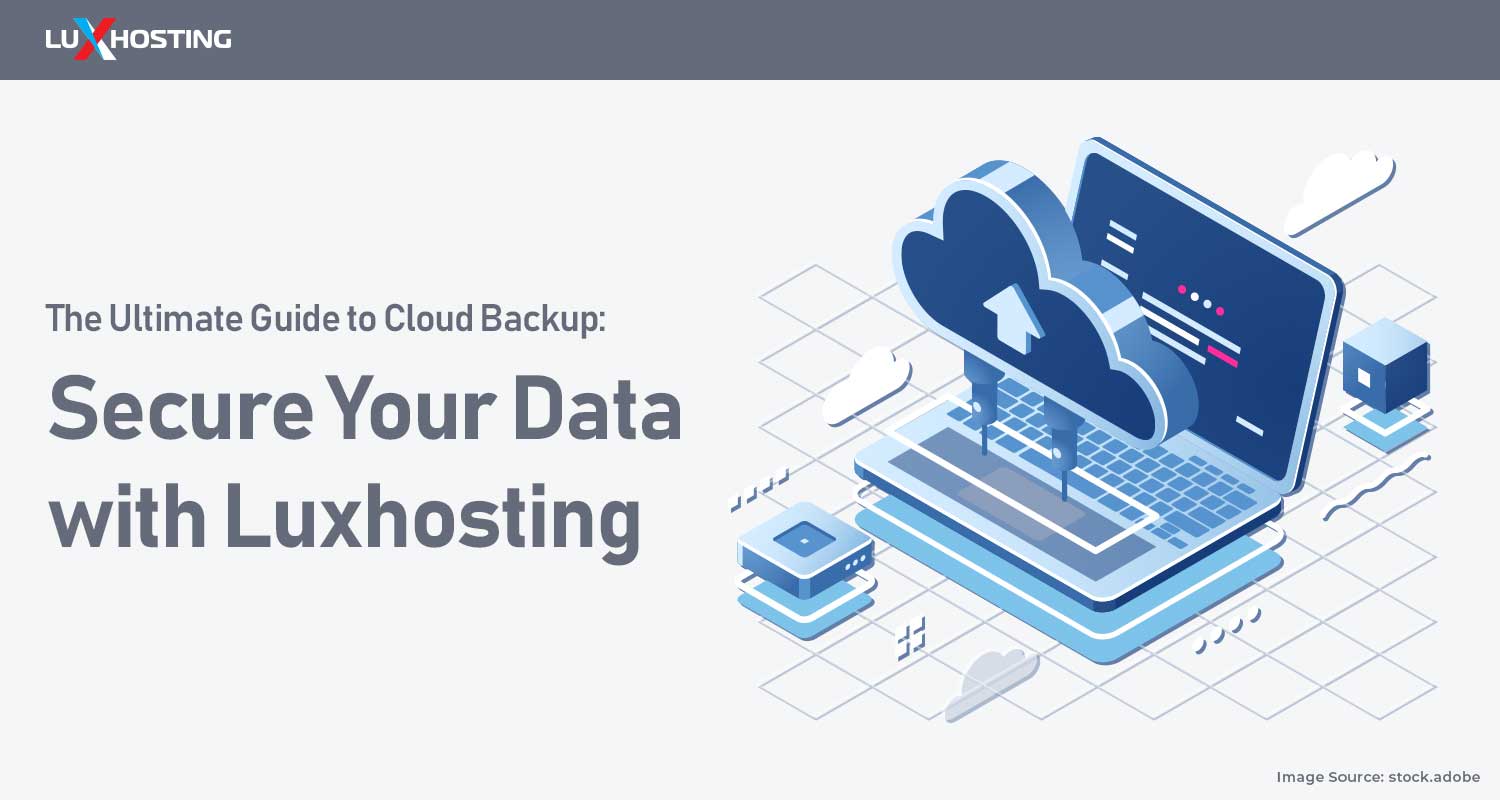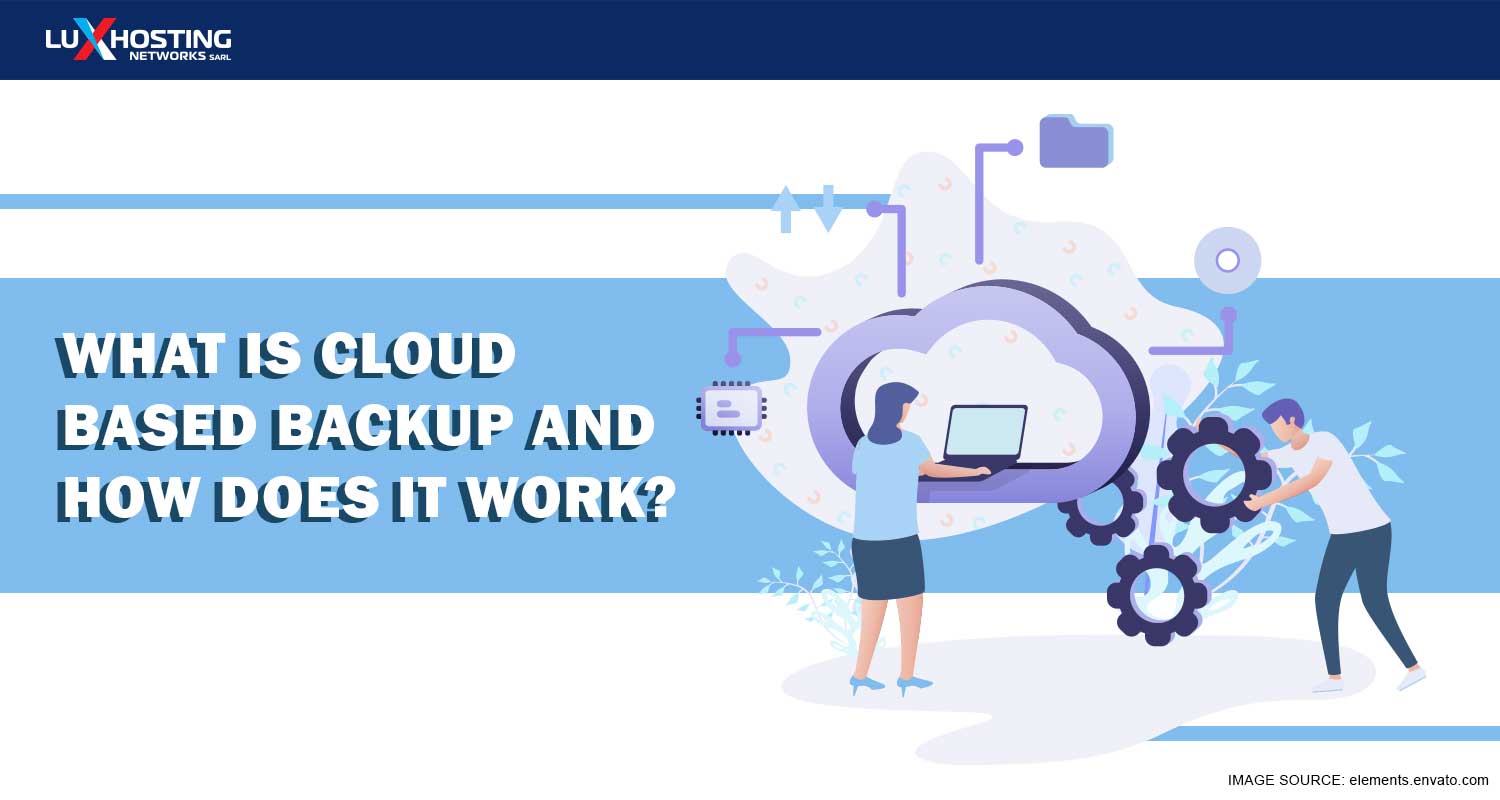Your website is the cheapest and most effective way to keep your business open 24/7. While you get your doctor-recommended eight hours of sleep, your website keeps marketing your business and attracting customers like a magnet. When your website is down, you’re not making any money, and you’re losing customers. That’s why savvy business owners use cloud backup. Learn these ten incredible web based backup tips that will tighten your website's security. Before we start, let's review the definition of cloud backup.
What is cloud backup?
Cloud backup, also called online backup, remote backup, or web based backup, is a system that secures your website by sending a copy of your website data to a separate location in case of data loss, hacking, or equipment failure. This means that if anything goes wrong with your website, you won’t have to create all your content from scratch.
What’s so great about web based backup?
Physically backing up your data is a wise practice, but it can’t replace web based backup, which lets you create a mirror-image copy of your website that can be uploaded to the internet and securely stored off-site. Here are just some of the reasons to love web based backup:
- The best cloud backup providers take care of most of the management tasks that are necessary for keeping your data safe.
- Cloud backup is more secure against ransomware attacks because your website is stored off-site.
- With cloud backup, your data is encrypted before being sent to the cloud, which adds an extra layer of protection.
- Cloud backup is scalable, which means you can easily scale your backup requirements as your company grows. Cloud backup is essential for your website, but not all web based backup is created equal. Here are some tips for choosing the best cloud backup:
4 tips for choosing the best cloud backup for your business
- Look for flexibility
- Backup must be scalable and based on your needs
- Choose end-to-end data encryption
- Rapid recovery times are essential
1. Look for flexibility
Choose a flexible hybrid backup system to ensure that your website is fully protected.
2. Backup must be scalable and based on your needs
A cloud backup service provider should offer a range of packages, so that you can choose the most appropriate level of protection for your website. If you choose a package that offers less protection than you need, your website won’t be protected. If you choose a package that offers more protection than you need, you’ll end up overpaying. Talk with your web hosting company to see how much backup you actually need.
3. Choose end-to-end encryption
The most important feature of cloud backup is security. Choosing end-to-end encryption prevents unauthorised access to your data.
4. Rapid recovery times are essential
When your backup is fast, you’ll spend less time recovering files in the event of a disaster. Our Acronis Backup service uses reliable cloud backup to make sure your backup is available whenever you need it. When you make an Acronis backup to the cloud, you can back up all your website’s data to the cloud with a single click from one dashboard. Backup and restoration times are fast. You can even schedule your Acronis backups and have them stored in multiple locations.
6 tips for using web based backup:
- Use Acronis backup to supplement your portable hard drives
- Make sure you have a strong password
- Choose the right cloud service provider
- Invest in the best cloud backup you can find
- Have a disaster recovery plan
- Test your backup
1. Use Acronis backup to supplement your portable hard drives
It’s never a good idea to have only one means of backing up your data. This means that even if you already have some kind of external storage system in place, you’ll still need to use a web based backup system like Acronis. The Acronis Cloud Backup system is compatible with Macs and PCs, and it lets you control where your data is stored. You can even choose a combination of storage locations. The Acronis interface is so easy to use that you can schedule, track and recover your website like a pro, even if you usually need help finding your way around a computer.
2. Make sure you have a strong password
A strong password is one that can’t be readily guessed, whether by people who know you or by hackers. This means that your password shouldn’t have any obvious connection to you (So, no children’s names, and no birthdays). The best way to have a strong password is to make it a random (or seemingly random) combination of numbers, symbols, and letters (both upper- and lowercase). Also, longer passwords are usually more secure than shorter ones.
3. Choose the right cloud service provider
Your data won’t be secure if your cloud storage provider is using outdated protocols or unsecured servers. To ensure the best cloud backup, look for a provider that offers these features:
- Acronis backup
- 24/7 customer support
- End-to-end encryption
- On-site data recovery
4. Invest in the best cloud backup you can find
The best cloud backup services will be intuitive to use and install, and they won’t cost more than you can afford. That said, you’ll need to make sure that you don’t skimp on your website’s security. If you find backup that’s reliable and efficient, invest in it. Ridiculously cheap backup options are often less reliable and end up losing you money in the long run.
5. Have a disaster recovery plan
Backing up your website is a very good start, but the best way to ensure that your website is absolutely secure is to have a rock-solid disaster recovery plan, in which you outline all the foreseeable disasters you’re trying to protect your website against as well as where each piece of data is stored and your plan for recovery.
6. Test your backup
This is probably the most important cloud backup security tip. Most small business owners can’t afford to simulate a gigantic disaster and then test recovery, but testing doesn’t need to be such an elaborate process. Your testing can be as simple as a meeting in which you discuss all the steps involved in the data recovery process, as well as what might go wrong with each step and how you’ll get around these obstacles. But if you do have the budget for an elaborate test, go for it! The more thorough your testing process, the better. But whatever your resources, be sure to test your backups before you actually need them.
Wrapping up
Backing up your system is essential to having a high-functioning website. (That’s why we offer free backup with all our private hosting plans.) So, don’t wait too long to secure your website. The longer you wait to back up your website, the more work you’ll have to do to restore your website after a catastrophic event. As soon as you choose a domain for your website, start thinking about how you’re going to keep it secure.

